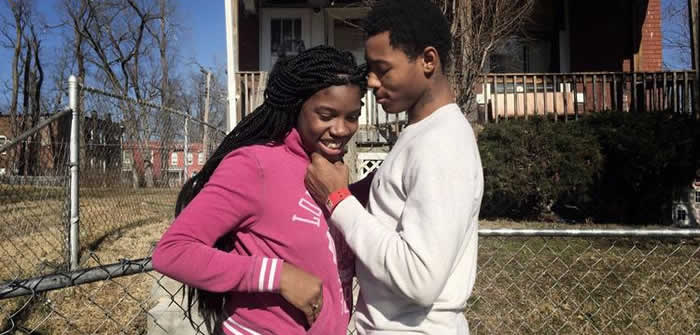Since its debut in 2014, the Baltimore International Black Film Festival has positioned itself as a minority showcase, highlighting the work of filmmakers who are shining a light on people and experiences too often ignored in mainstream moviemaking.
“We hope to use this festival as a way to have a dialogue … that will bring us closer together,” says Ken Moore, founder and director of the festival, which will be showing films Wednesday through Oct. 8 at the Charles Theatre”, the Reginald F. Lewis Museum of Maryland African American History & Culture and the Murphy Fine Arts Center at Morgan State University. “The idea is to begin to see somebody else’s experiences, and to see the common humanity, even though it may be different from ours.”
That’s a tall order for a five-day film festival, but Moore and his programmers have assembled a film lineup rich in diversity — a mix of narrative and documentary features, 20 in all, from the U.S. and several foreign countries, plus shorts and student films — that should do the job. Moore says the objective was to put together a lineup that was about one-third grounded in the African-American experience, one-third grounded in the African diaspora and one-third grounded in the LGBTQ community.
“The idea is to stretch your understanding of someone else’s body, to give people experiences outside their own,” he says.
The fourth annual festival kicks off Wednesday at the Charles with director Katherine Fairfax Wright’s “Behind the Curtain: Todrick Hall,” a documentary look at the “American Idol” semifinalist as he puts together, in only 16 days, an original musical called “Straight Outta Oz,” a reworking of “The Wizard of Oz” inspired by Beyonce’s “Lemonade” album.
It’s hard not be inspired by Wright’s take on Hall’s story, Moore says. “It’s telling the story of growing up in small-town America as a black man, not sure of his sexuality … and of how society didn’t make that process easy for him. It’s a story of grit, of determination despite the odds.”
The festival concludes with an Oct. 8 screening of director Jonathan Olshefski’s “Quest,” another documentary (the festival’s lineup is about three-fourths documentaries), this one shot over a decade, following a North Philadelphia couple as they open their home to be used as a recording studio — and, in no small part, a sanctuary from the strife-filled neighborhood in which they live.
“Quest,” Moore notes, reflects a definite place and time. “It starts with them going to vote for [President Barack] Obama for the first time,” he says, “and ends with the [Donald] Trump election.”
Other highlights from the festival include:
“Le Vie Magnifique de Charlie,” the story of a young woman’s quirky approach to grieving the death of her sister, from Atlanta-based writer-director Bobby Huntley (5:15 p.m. Oct. 8 at the Murphy Fine Arts center)
“Segregation is Back,” a look at how high schools in Selma, Ala., are once again becoming segregated — as they are in many other parts of the U.S. From French director Romain Icard (12:15 p.m. Thursday at the Charles)
“The Death and Life of Marsha P. Johnson,” a new investigation into the death of the black transgender activist who was a central figure in the Stonewall riots that helped spark the gay rights movement in the late 1960s, from New York magazine contributing editor David France (9:45 p.m. Oct. 6 at the Murphy Fine Arts Center)
“Dancing in the Dark,” a look at the Black and Latino American gay experience, as seen through the prism of nightlife culture, from director Adomako Aman (3:15 p.m. Oct. 8 at the Murphy Fine Arts Center).
As an addition to the feature-film offerings, Moore says the festival has tried to pair each with a short that will offer audiences a contrasting experience. An example: “For Ahkeem” (7 p.m. Thursday at The Charles), watches as a teenager living near Ferguson, Mo., tries to turn her life around after a school fight lands her in juvenile court*. It’s being paired with a 15-minute dramatic short, “We Love Moses
The festival will also offer filmmaker appearances, workshops and seminars and a free youth film showcase, featuring films made by teenagers from Baltimore, Washington, and California (5 p.m. Thursday at The Charles).
“This could be a way of bringing us all together,” says Moore. “Here we are, we’re all at the same festival, having the same experience, and hopefully transforming as a result.”
The Baltimore International Black Film Festival runs Oct. 4-8 at the Charles, 1711 N. Charles St.; the Murphy Fine Arts Center, 2201 Argonne Drive; and the Reginald F. Lewis Museum of Maryland African American History & Culture, 830 E. Pratt St. Tickets are $8.50-$15 per film; all-access VIP passes are available for $125, day passes for $40-$60. bibff.com.
Source: The Baltimore Sun

